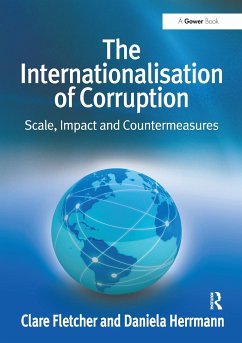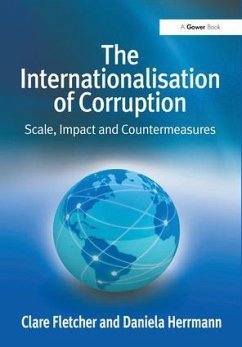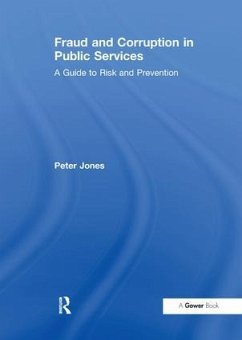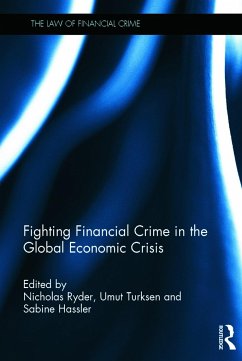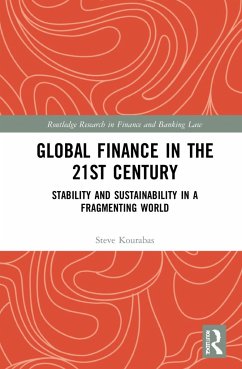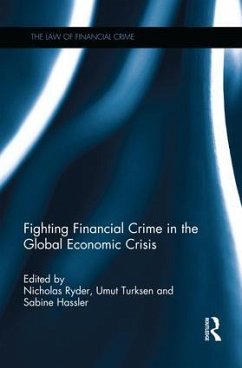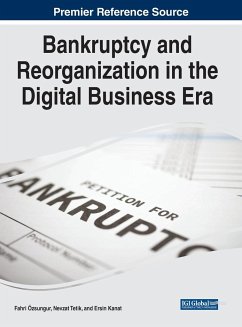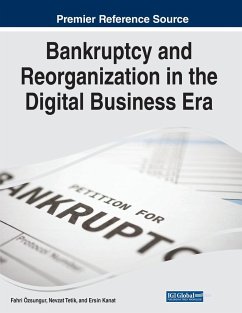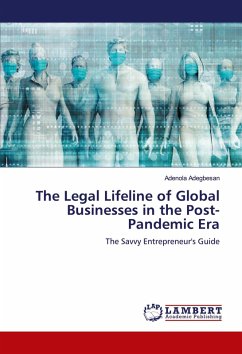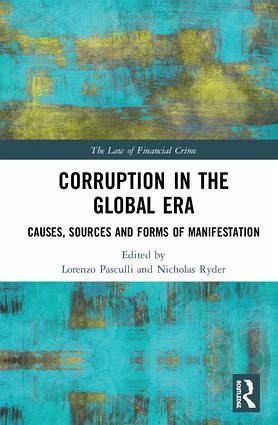
Corruption in the Global Era
Causes, Sources and Forms of Manifestation
Herausgeber: Pasculli, Lorenzo; Ryder, Nicholas
Versandkostenfrei!
Versandfertig in 1-2 Wochen
168,99 €
inkl. MwSt.
Weitere Ausgaben:

PAYBACK Punkte
84 °P sammeln!
Corruption is a globalising phenomenon. Not only is it rapidly expanding globally but, more significantly, its causes, its means and forms of perpetration and its effects are more and more rooted in the many developments of globalisation. The Panama Papers, the FIFA scandals and the Petrobras case in Brazil are just a few examples of the rapid and alarming globalisation of corrupt practices in recent years. The lack of empirical evidence on corrupt schemes and a still imperfect dialogue between different disciplinary areas and between academic and practitioners hinder our knowledge of corrupti...
Corruption is a globalising phenomenon. Not only is it rapidly expanding globally but, more significantly, its causes, its means and forms of perpetration and its effects are more and more rooted in the many developments of globalisation. The Panama Papers, the FIFA scandals and the Petrobras case in Brazil are just a few examples of the rapid and alarming globalisation of corrupt practices in recent years. The lack of empirical evidence on corrupt schemes and a still imperfect dialogue between different disciplinary areas and between academic and practitioners hinder our knowledge of corruption as a global phenomenon and slow down the adoption of appropriate policy responses. Corruption in the Global Era seeks to establish an interdisciplinary dialogue between theory and practice and between different disciplines and to provide a better understanding of the multifaceted aspects of corruption as a global phenomenon. This book gathers top experts across various fields of both the academic and the professional world - including criminology, economics, finance, journalism, law, legal ethics and philosophy of law - to analyze the causes and the forms of manifestation of corruption in the global context and in various sectors (sports, health care, finance, the press etc.) from the most disparate perspectives. The theoretical frameworks elaborated by academics are here complemented by precious insider accounts on corruption in different areas, such as banking and finance and the press. The expanding links between corrupt practices and other global crimes, such as money laundering, fraud and human trafficking, are also explored. This book is an important resource to researchers, academics and students in the fields of law, criminology, sociology, economics and ethics, as well as professionals, particularly solicitors, barristers, businessmen and public servants.




